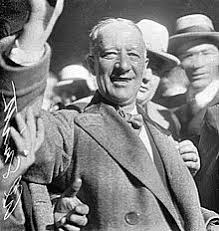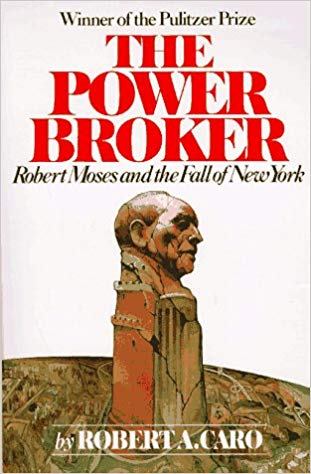Chapter 15 – Curator of Cauliflowers
In 1925, after vicious infighting with Moses as one of the main protagonists, the Reconstruction Bill reorganising government departments, originally drafted by Moses in 1919, was passed with minimal amendments. This reconstruction became the main structure for governing New York. This gave the governor immense legislative, executive and budgetary powers. Al Smith used these powers to enact large programmes of social reforms, including huge housing projects. Moses was the architect for this consolidation of power. The new structure included the appointment of a Secretary of State, who would be able to use this power in the name of the governor. There was uproar in New York political circles when Robert Moses was appointed as New York’s first Secretary of State. The Democrats objected because Moses was a Republican. The Republicans objected because they knew Moses was the servant of Al Smith, the leading Tammany Democrat. However, because of Moses’s popularity with the press and public, nobody dared to object to the appointment.
With his new powers, Smith was able to start a program of public works, involving parks, housing and hospitals. As the main executive in these projects, Moses threw himself into his work.
He turned his limousine into an office, even holding meetings in there so as not to waste a second of the day. He gave his secretary, Miss Tappen, three chauffeurs available twenty-four hours a day, and three secretaries of her own to carry out the tremendous volume of work that Moses was generating. He had buzzers included in each of his executive’s office and would expect them to be in his office immediately if he wanted them.
Moses had physically filled out. He had a big face, a big smile and a big body. He had developed a fearsome temper. He no longer inspired men, he commanded them. Only water seemed to calm him. He insisted every office and home he used was near the water. Still a keen and strong swimmer, he would swim every day.

He had a gift, however, to pick men to work for him. He seemed able to know which men were able to handle responsibility. He communicated almost entirely by memo. Only a few executives spoke with him directly and was increasingly unable to accept advice. He required absolute loyalty from his staff and he rewarded that loyalty with rapid advancement. They became part of an elite, known as “Moses Men.” He ensured that all their letters were written in a house style; his style. He taught them the social skills to allow them to communicate with people of power, and delegated authority to them. He had parks workers build and maintain houses for his executives on park land. Most of all, he gave his workers a sense of mission and purpose. They saw their plans turn rapidly into physical reality. Everybody knew that with Smith at the helm, whatever Moses wanted to happen, happened.
In the meantime, Moses was able to show some compromise with the barons of Long Island. He negotiated skilfully to allow his Northern State Parkway to pass through the baron’s estates with the minimum inconvenience, sometimes driving it through the land of poor farmers instead. Moses knew that he would have to negotiate with men of wealth and influence, but with the powerless, he could afford to be ruthless.
More power came to Moses due to Al Smith’s Presidential bid. He did not play a great role in the campaign (this was run by Mrs. Moskowitz) which was eventually lost, but while Smith was campaigning, Moses was effectively governing. Time however, was still of the essence, as Smith would not be able to serve as Governor if he was made President. Moses was therefore worried that without Smith, his plans would be shelved, and the man who was to follow Smith as Governor was to be Moses’s deadliest enemy.
Analysis & Key Takeaways
- Being a good judge of the kinds of people you bring on board is critical but difficult;
- Moses applied a cruel distaste for the poor; he knew they were vulnerable and acted to undermine their interests if they conflicted with his and the ‘public interest’ which he hid behind. The public interest for Moses was the above average income bracket, it seems to not include non-white Americans, Robert Caro called Moses a racist in interviews but not explicitly in the book, this is substantiated by Moses’ planning tactics, the Jones Beach bus blockade and the cold pool water examples come to mind;
- Fait Accompli strategy is to start a project that cannot be fully paid for with the agreed-upon budget but then embarrass the government into paying for the remaining.


